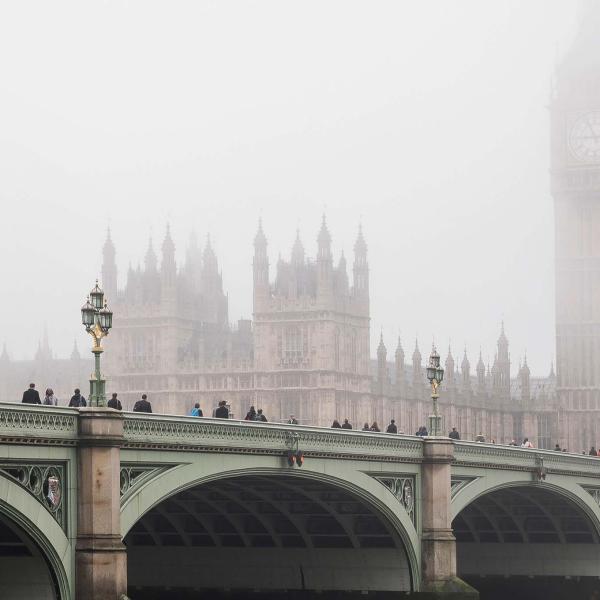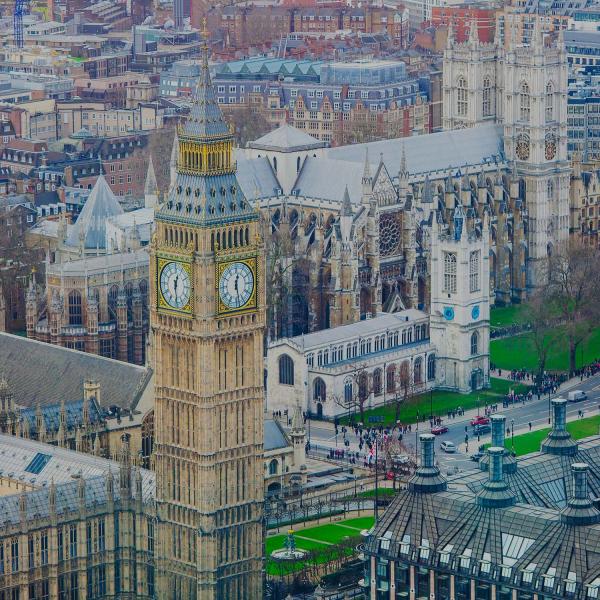One in eight older workers (13%) have already changed their planned retirement age as a result of the coronavirus pandemic.
- 8% are now planning to retire later than they had previously intended – with this being more common among those with a pension fund that has fallen in value, and those working from home. This suggest some are now planning to work for longer to make up for a fall in their wealth, while others want to do so because new working practices make staying in work easier or more appealing.
- 5% are planning to retire earlier than they had previously intended – with this being more common among richer households and those on furlough. It would be worrying if the latter group are now expecting to enter retirement earlier than they would like because they are discouraged about their prospects of finding new work.
Almost a third of older workers report that their financial situation has worsened as a result of the crisis, with those who were, in any case, struggling financially much more likely than those who are better off to report a worsening in their financial situation. This suggests that the crisis has widened financial inequalities within the older population. It is also notable that many more older workers are worried about their future financial situation than are those who are already retired.
These are among the findings of two new briefing notes published by the Institute for Fiscal Studies (IFS) today, which have been funded by the Centre for Ageing Better (on older adults’ work activities and expectations) and by UK Research and Innovation (on the financial consequences of the crisis for older adults). The analysis draws on new data from the English Longitudinal Study of Ageing (ELSA) COVID-19 study. This specially conducted survey, made possible with funding from UK Research and Innovation, the US National Institute of Aging and a consortium of UK government departments, interviewed adults in their 50s and older in June–July 2020.
Further key findings on work activities and expectations include:
- A significant minority of older people working immediately before the crisis are now retired: 6% of those aged 66–70 and 11% of those aged 71 and older. While some may have been planning to retire around this time anyway, this is not true of all.
- The protection of their own health is an important consideration for older workers. Among those on furlough in June–July, the advice to shield or concerns about their own health were the only reason(s) cited for nearly one in six individuals. It remains to be seen how the work status of these people changes as the government-supported furlough scheme is phased out.
- Many people who are clinically vulnerable to coronavirus have continued working outside their homes. This may be because they enjoy their work, because they do not perceive themselves to be at high risk, or because they cannot afford to stop work.
- Concerns about job security are prevalent and not restricted to those who are on furlough. Among those in employment almost a quarter are either somewhat or extremely worried about their job security. Those with a health condition or disability that limits the amount or type of work they can do are particularly concerned.
Key findings on the financial consequences of the crisis for older adults include:
- Not all older individuals have wealth to help them weather income shocks. Among those whose income has fallen since the outbreak of the pandemic, 23% have household net financial wealth of less than £500 per person. In response to their falling incomes, 5% had drawn on pension savings, 4% had borrowed from a bank and 5% had borrowed from family or friends.
- Fluctuations in stock markets will have hit the significant and growing minority of older people who hold some wealth in equities. Around 34% of older workers and 41% of retirees hold wealth directly in risky assets, while 54% of older workers have defined contribution pensions. Wealth will be permanently reduced if individuals draw on it before asset prices recover.
- Nearly 90% of retired respondents were not at all or not very worried about their future financial situation, but among those in work over one-third were at least somewhat worried. As would be expected, concerns are strongly related to wealth, with just over half (52%) of the poorest fifth of the population worried about their future financial situation, compared with only just over one in ten of those in the wealthiest fifth.
Heidi Karjalainen, a Research Economist at IFS, said:
‘The personal finances of many older adults are being hit by the fallout from the coronavirus pandemic. While many have wealth to help them smooth income shocks, this is by no means true of all. A quarter of them report net financial assets of less than £500. The crisis risks worsening financial inequalities. Older adults are also more exposed to financial hits to their pension saving, because being closer to retirement there is less time for fund values to recover before they might want to start drawing on their wealth. Crises like the current one highlight the risks that arise when individual saving is increasingly important for securing living standards in retirement.’
Rowena Crawford, an Associate Director at IFS, said:
‘The current pandemic risks having serious and long-term financial consequences for older workers, affecting living standards into and through retirement. The crisis has also been disruptive to major life plans, with one in eight older workers so far changing the age at which they planned to retire. Those on furlough are now more likely than those working to be planning to retire earlier and it will be important to monitor that this does not represent a rise in involuntary retirement among people discouraged from finding new work. On a positive note, those working from home are now more likely to be planning to retire later; suggesting changes to work practices could benefit some older workers.’
Emily Andrews, Senior Evidence Manager at Centre for Ageing Better, said:
“The coronavirus crisis has disrupted many people’s working lives in ways we couldn’t have imagined just a few months ago. There have been some silver linings – for example with more flexible working patterns allowing people to stay in work for longer. But it’s deeply worrying to see many people now planning to retire earlier than they intended – including many who are currently on furlough. That’s OK where it’s a positive choice, but for many it won’t be and will leave them poorer or in financial difficulty in later life. We know that once out of work, over-50s struggle more than any other group to get back into employment, and we must not let a generation of older workers write themselves off prematurely. In addition to the kickstart scheme for younger workers, we need to see targeted support for over-50s to get back into work, retraining opportunities for over-50s, and a strong message from government that over-50s are just as entitled to jobs as younger workers.”










